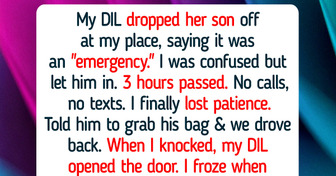Regarding these suggestions: Has anyone there actually tried to talk to some of the kids out there today?????
You have a bunch of Entitled ratbag who regardless of the rules of Society let alone businesses like Restaurants teach their kids they have more rights than adults bc some are cute so they can manipulate people, they don't have to worry if a babysitter shows up or not they will Still take them to an adults restaurant where they're not supposed to be, annoy and upset others bc it's convenient for their parents, l don't blame the kids but the parents.
l've seen one mother stand by while her 2 kids jumped the counter & put their mouths over the soft serve nozzle, while his brother grabbed a huge handful of hot chips before running off. When asked about it "mother" just shrugged and said, not my problem. in the meantime no one got chips or soft serve while they had to clean the machinery. Seen too much to think for one moment any of these would work, nice idea, but l'm a realist and these come under the heading of FANTASY!
Oh and BTW l'm a mum and a grandmother.
9 Ways to Deal With Other People’s Children When They Are Troublemakers
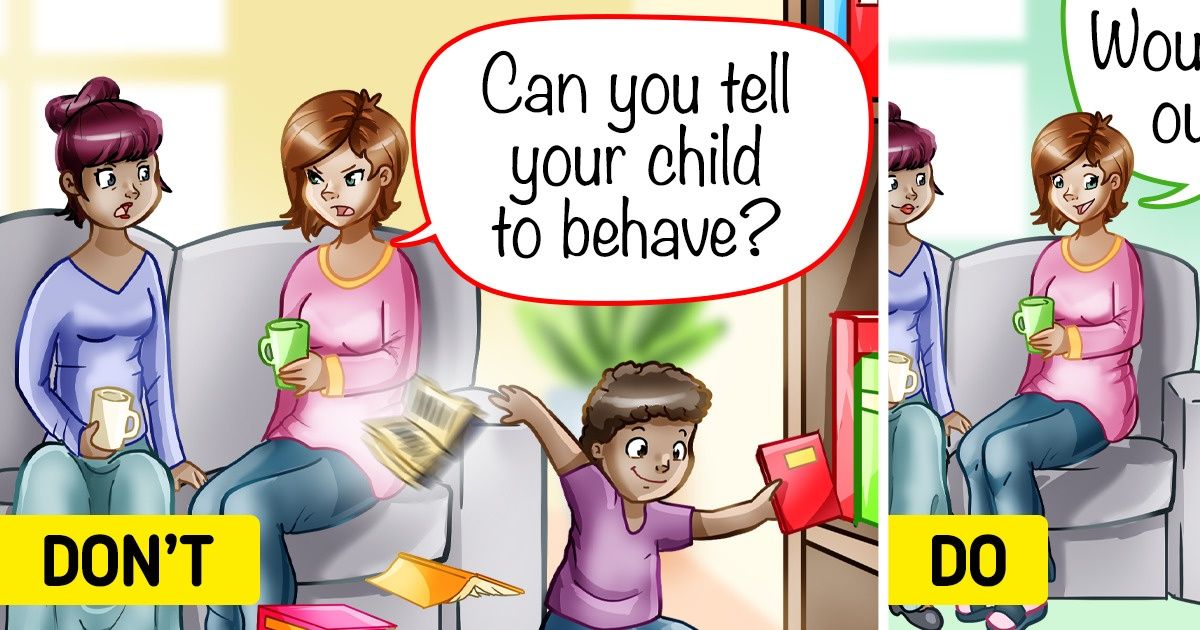
Having a child is the same as acquiring the superpower of eternal patience. Still, dealing with other people’s children can be a headache for those who are not used to it or when they don’t know what limits, as adults, they should set for a child they don’t know.
So you don’t lose your sanity or end up in a lawsuit with other parents over how you addressed their children, Bright Side brings you a series of tips on how to act appropriately when dealing with naughty kids who don’t call you “mom” or “dad.”
1. Do not intervene if it is not necessary.
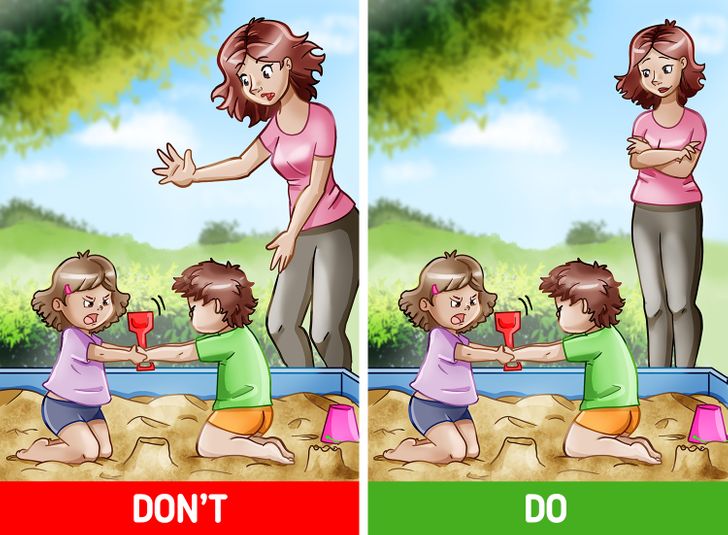
It is common for children to get into fights. Even when it is over something small, it means the world to them. It is recommended that you don’t do anything unless the situation gets out of hand. Your early intervention may teach your child that when they’re in trouble, their parents will come to the rescue, and they won’t learn to solve problems on their own.
But if the conflict becomes more aggressive, you should act and encourage children to speak up and tell their side of the story — always explaining that physical attacks are wrong.
2. Use your “teacher’s voice”
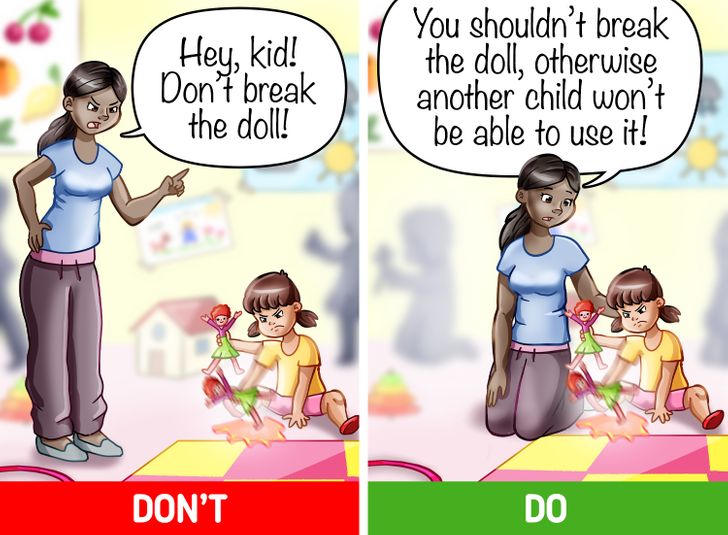
Speaking aggressively to a child is actually a type of violence. This is especially true if it’s someone else’s child or if you don’t know what’s going on or what the consequences of your scolding might be.
The best way to address a misbehaving child, according to etiquette experts, is to use your “teacher’s voice” — that is, a strong and authoritative, but also kind, manner. You have to make them understand that their behavior is wrong, but in the way you would want to be spoken to if you were a child.
3. Re-direct the situation
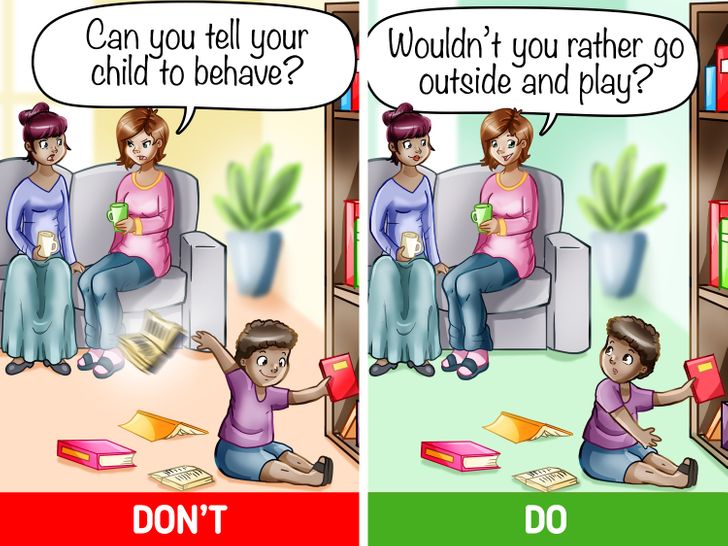
There may be times when a child is misbehaving and the parents, although present, don’t make a big deal out of it.
Before reproaching the parents for calling attention to the child, you can redirect the child’s action by offering other options. For example, if they are playing inside and touching things they shouldn’t or running around the house, invite them outside to play in the yard, or offer them a board game or some other activity or task to redirect their effusive behavior to something else.
4. Talk to the parents about your intervention
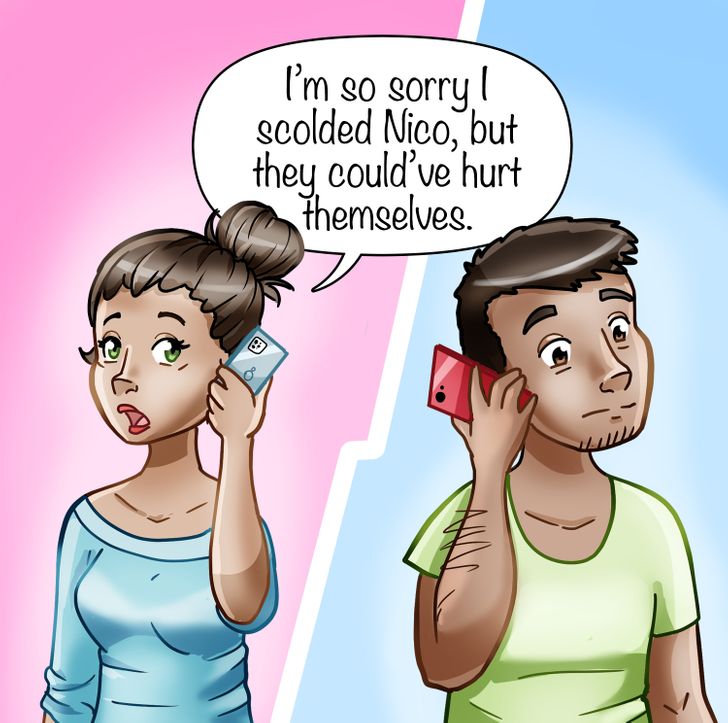
When the child’s parent does not witness a situation in which the safety of the child or others is at risk because of the child’s behavior, it is more than clear that you must act to ensure everyone’s well-being. But the reprimanded child may misinterpret your reaction and tell another side of the story to their parents, making you look like the bad person.
A social worker will advise you to tell the parents what happened before the child has a chance, thus avoiding misunderstandings and anger.
5. Give parents time to respond
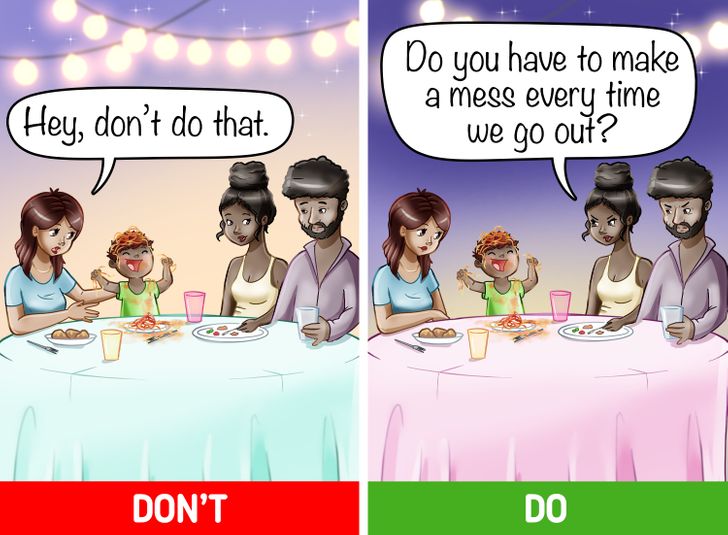
The most important thing to remember is that the parents of problem children are the ones in charge of correcting their manners, not you. So, if you are faced with a situation where a child is not behaving properly, etiquette experts advise that you allow enough time for parents to realize what their child is doing and let them be the ones to act and discipline, without you jumping into action first.
Also, don’t share your thoughts on what you would have done or how they should have done it, they understand the child better than anyone else and know what to do.
6. Don’t expose your child to another child who does not behave.
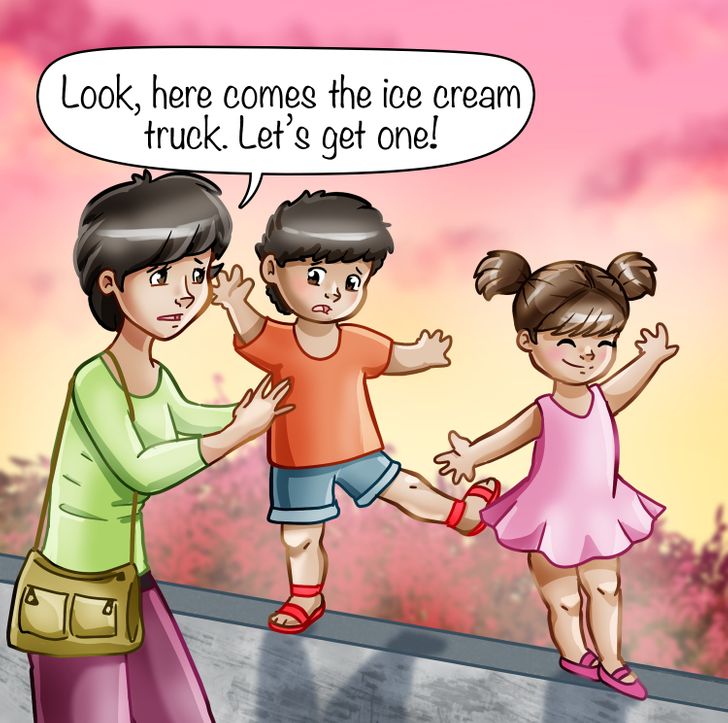
Human beings are sociable by nature, but a child may not realize when someone in their environment is a bad influence. As an educator explains, the effects of a disruptive person on childhood can have consequences in adulthood. Moreover, a child that’s easily impressed can be marked by this kind of event all the way into adolescence.
That is why, as a responsible parent, you should keep your child away from bad company, but you have to do it in the right way, without allowing them the slightest chance to make the decision not to obey. For example, do not ask them if they would rather go to another playground area to get away from that person, but you can invent some pretext so that they decide to stay away.
7. When there are children in a restaurant
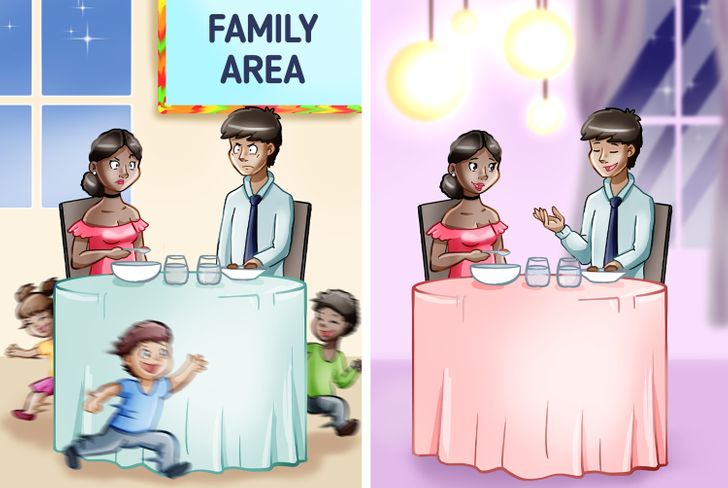
There are family-friendly and not-so-family-friendly places to eat, so if the presence of children might bother you, the best thing to do before you go is to ask if it’s usually crowded with kids. You can also reserve your table in a quieter location or ask to be moved somewhere quieter if your patience with other people’s children is wearing thin.
When none of these possibilities exist, you have no choice but to be patient. Remember how you were and what you did at that age, or how your children behaved in public places. On the other hand, sometimes it is not the fault of the children, but of the adults who accompany them and do not take responsibility for their behavior.
8. When a child you don’t like comes to your house
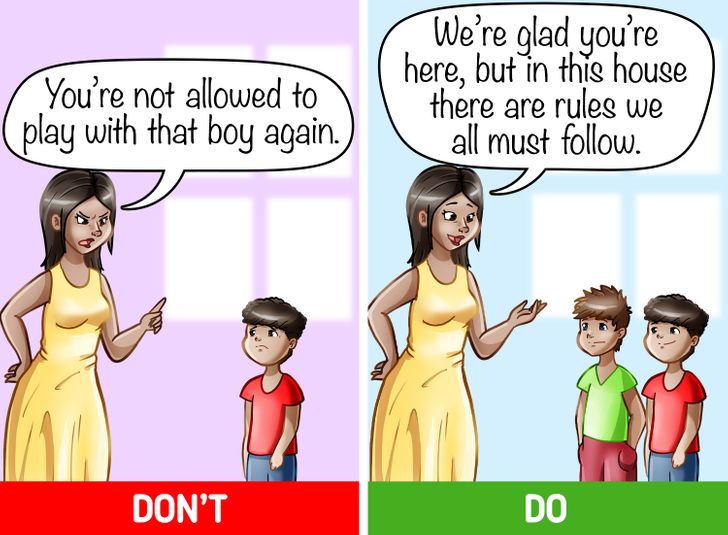
What may be funny or cute to your child may be a bad influence. If you don’t like your child’s friend, it’s okay because you want what’s best for your child and it’s okay to be concerned about their circle of friends. But forbidding him to hang out with that friend is not the solution, as it could cause them to be more attracted to this person and could even get you in trouble with his parents if they find out you don’t want them to spend time together.
To cope with this situation, a psychologist shares some advice:
The first is to get to know the child so you can discover their positive qualities and what your child is attracted to about them.
The second is to be a gracious host: you should show your child how good it is to have friends at home. Moreover, in that area, you can keep an eye on them and intervene kindly if things start to get complicated.
The third is to tell them the rules of the house, so they can follow them. If they do not know them, it is likely that they will not follow them and it will not be their fault.
9. When children misbehave in a store
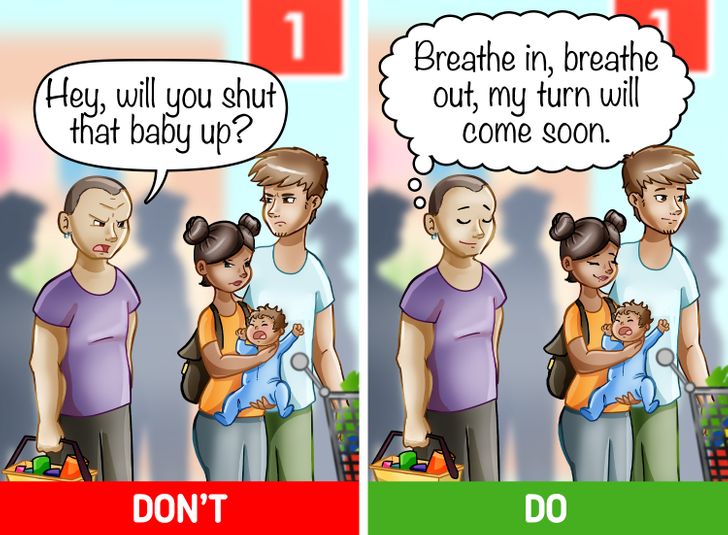
Going to the store can be exciting for children, as they can get their hands on many things they like, but they can’t buy them. That usually triggers crying, tantrums, and bad behavior that other customers have to witness.
But before you say anything, remember that the parents are probably embarrassed and upset and running out of ideas to calm the child down, so getting angry and treating them badly will only make things worse. Also, remember that tantrums at this age are normal and that children are learning how to behave in public places. Just be patient and remember that you will be out of there in a few minutes.
Bonus: When another adult scolds your child
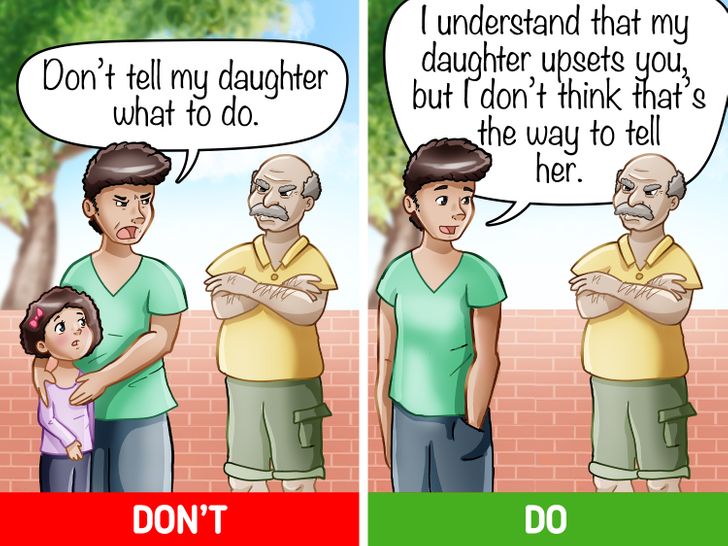
Now you have some tips you can follow when you come across a child who is misbehaving, but what can we do when the situation is the other way around and an adult scolds our children? Surely you will feel like scolding them and you will get angry at the way they address your little one. But that is not the way to peace — there are better ways to deal with the situation.
You should not show aggression, since you would be teaching your child that this is the way to resolve conflicts. You should also talk to the adult to express your disagreement with his or her actions, but not in front of the child so as not to undermine them, especially if they are close to you. On the other hand, it is important to validate the adult if we agree with their decision, but do not forget to talk to the child about what happened so that they understand what they did wrong.
What is the most awkward or funny situation you have experienced with someone else’s child? Were you able to resolve it? How did it end?
Comments
Related Reads
A Girl With a Hidden Disability Refused to Give Up Her Seat to an Elderly Woman, and Now Feels Bad About It
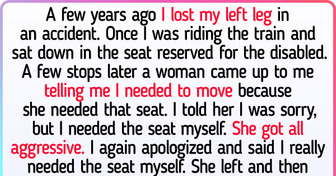
18 Stories That Show Treating Others With Kindness Is Always the Best Decision
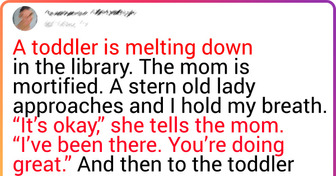
16 Kind Stories That Are Like a Band-Aid to the Soul
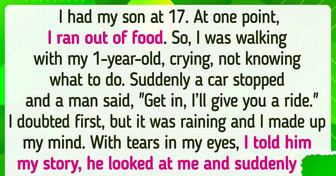
I Cut Off My Parents After They Demanded My Inheritance—and I Don’t Regret It
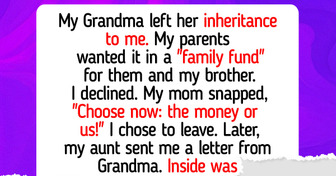
11 People Who Chose Kindness Over Looking Away
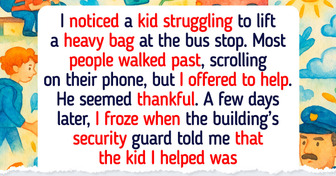
My In-Laws Forced Me to Leave My Vacation Early—They Crossed Every Line
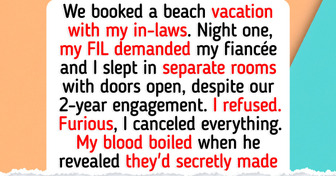
I’m Child-Free, So My Parents Chose My Adopted Brother to Inherit — I Didn’t Let That Slide
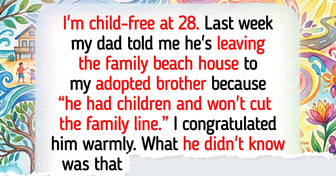
I Refuse to Earn Pennies While My Manager Cashes a Fortune
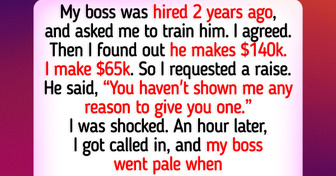
My Family Spent My College Fund on Christmas for Years—Now They Want My Help
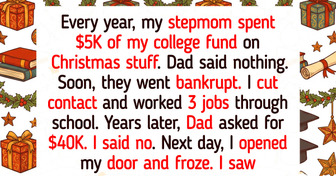
12 Acts of Kindness That Quietly Turned Strangers Into Heroes
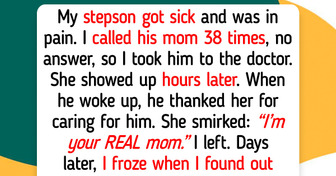
12 Moments That Show Romance Is Really About Small Acts of Kindness

15 Quiet Moments of Kindness That Made the Biggest Impact
